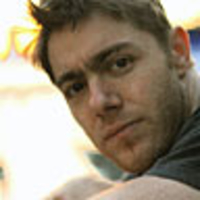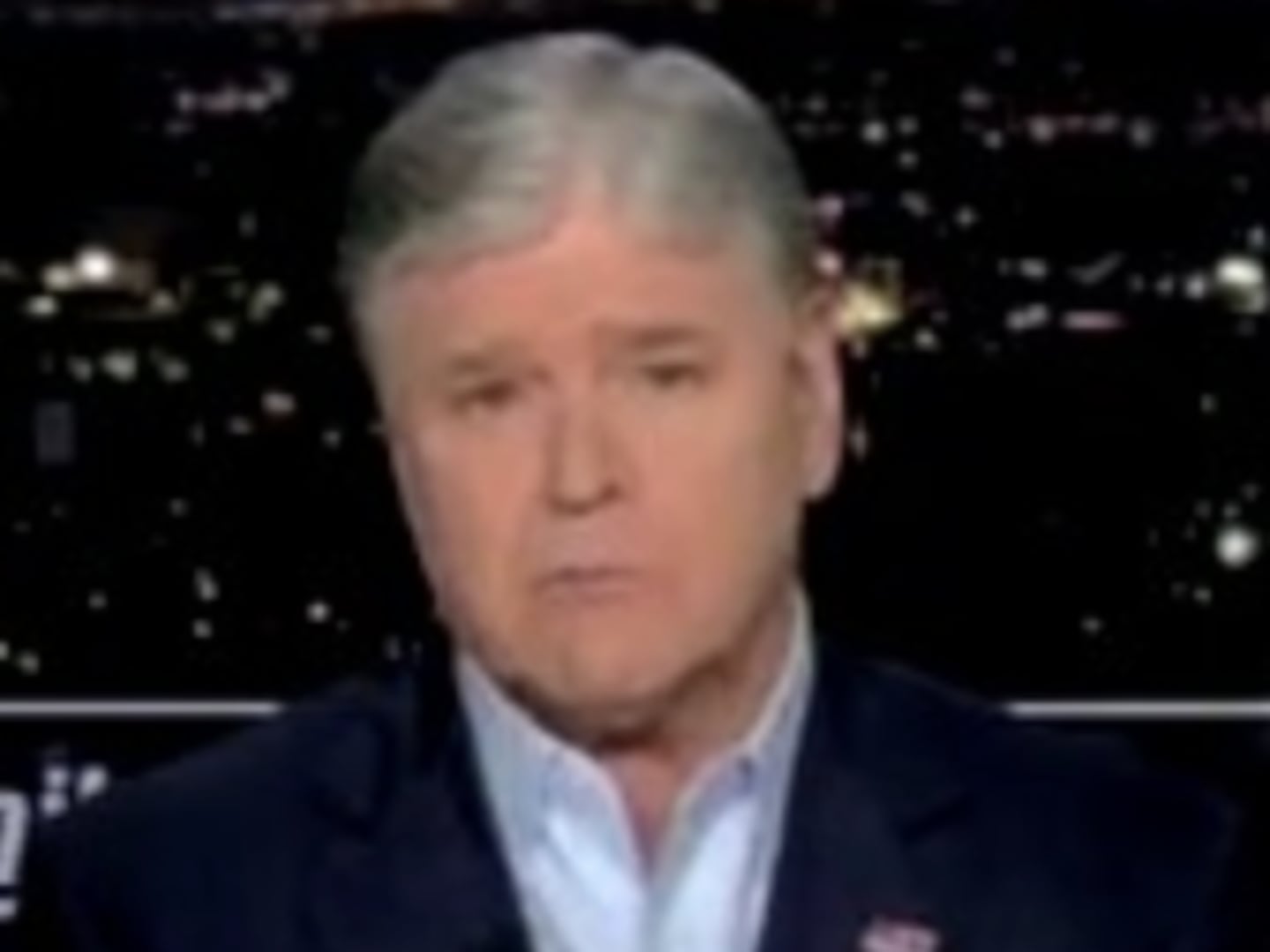
At least since Citizen Kane, it’s been something of a cliché that every angry guy has a deep dark secret from his childhood that explains how the man became who he is.
Not so for Anthony Bourdain, the bad boy chef of TV, whose new book, Medium Raw: A Bloody Valentine to the World of Food and the People Who Cook, came out last week.
“I did not want for love or attention,” he writes in his latest tome. “My parents loved me. Neither of them drank to excess. Nobody beat me. God was never mentioned—so I was annoyed by neither religion nor church nor any notions of damnation.”
“I’m a decent cook; I’m a decent chef. None of my friends would ever have hired me at any point in my career. Period.”
On last season's No Reservations, Bourdain sampled larger-than-life Chilean hot dogs.
And yet here he is—one of the brashest, most incisive commentators in the food business—sitting in the outdoor garden of Esca on West 43d Street, promoting a piece of work that comes with a chapter called “Alan Richman Is a Douche Bag,” about GQ’s well-known food critic. Elsewhere in the book, Bourdain, 53 years old, disses almost all of his former colleagues from the Food Network, and hurls enough insults toward the various stars of his profession to keep gossip columnists busy for weeks. (And indeed, they have been.)
His problem with Sandra Lee, the Food Network star who makes barbecue pizza from Pillsbury dough, and chicken potpie with frozen mixed vegetables, is that she has helped dumb down the entire profession of being a chef. Not to mention that Bourdain finds her personally terrifying. “She scares the living shit out of me,” he says, sipping a beer. “I know that when I look at her it’s the other. She is so far from who I am that it really is like looking at the other side of the moon.
As for the GQ food critic, Bourdain developed a distaste for his writing when Richman published a snarky article about restaurants in New Orleans, shortly after Hurricane Katrina. So Bourdain spoke about it, and then found his former restaurant Brasserie Les Halles the subject of a vicious review from Richman. “Well, first let me say that guy can write,” Bourdain says. “He has all of God’s gifts. But he has chosen to squander them in ways that have offended me. Obviously, I wasn’t a big fan of the New Orleans article. I thought it was in extraordinarily bad taste.” Still, he says, “He was not worthy of a whole chapter in a book. That came when he chose to review the restaurant I used to work at sheerly because I called him a douche bag. I thought it was a supremely dishonest thing to do, whatever he may say now.”
And then there are the various nefarious individuals who populate “Heroes and Villains,” a chapter in Bourdain’s book, among them Alain Ducasse, Food Network honcho Brooke Johnson, and famed food writer Gael Greene.
Greene, Bourdain writes, joins “the ranks of the damned” because “she moderated a panel at the 92nd Street Y in New York City… and she was lucky enough to have Fergus Henderson on her panel and she barely acknowledged him… She blathered on and on about her favorite subject (herself) while ignoring the most influential chef of the last 10 years sitting a few feet away.” Plus, he doesn’t much like her “bizarre, look-at-me, Peter Frampton/Michael Jackson/Gopher-from-Love Boat outfits.”
Reached for comment, Greene says, “How do you think anyone heard about Anthony Bourdain? He was a crook working in a minor restaurant and he wrote a fabulous book that everyone loved because he wrote with so much venom and hate. So I imagine that he’s forced to live up to that. I guess I’ll have to be very careful about my hats from now on.”
It’s not entirely clear what she’s referring to when she calls Bourdain a “crook” but at the very least, the writer/chef sees his appeal similarly to Greene. “My brand is I don’t give a shit and I try to honor that mantra every day,” Bourdain says.
As for his past, it’s certainly been colorful.
Bourdain grew up in Leonia, New Jersey. His father worked in a camera store, before going on to a successful career as an executive at Columbia Records.
If there is a “rosebud” in his childhood, it’s to be found in the movies he watched and the books he read. “I say that my early exposure to Dr. Strangelove f----- me up, I’d seen a lot of the Janus film collection by the time I was 12,” Bourdain says. “I read Animal Farm, R.U.R. and 1984 in one year. How can you do that and then buy what your parents are telling you?”
After high school, Bourdain went to Vassar for a couple of years, experimented with drugs and dropped out. Eventually, he wound up at the Culinary Institute of America, and then went to work at places like the Supper Club, One Fifth Avenue, and Sullivan’s. He began as a dishwasher, then became a “prep drone,” “line-cook,” and eventually sous chef. By the early '90s, he’d gone to work as the head chef Brasserie Les Halles, a restaurant on Park Avenue South that received fairly good reviews, even if Greene is correct that it was never considered to be among Manhattan’s finest restaurants.
“I was a journeyman chef of middling abilities,” Bourdain admits. “Whatever authority I have as a commenter on this world comes from the sheer weight of 28 years in the business. I kicked around for 28 years and came out the other end alive and able to form a sentence. It would be an egregious mistake to ever refer to me in the same breath as most of the people I write about. I’m a decent cook; I’m a decent chef. None of my friends would ever have hired me at any point in my career. Period.”
Then, in 1999, The New Yorker published an essay of his, called “Don’t Eat Before Reading This,” in which Bourdain spilled all sorts of secrets about his profession—what days not to eat fish, why brunch is a scam, how much butter really goes into your food. A book called Kitchen Confidential followed and was a smash, leading to more successful books and a nice career on TV where he parlayed his “I don’t give a shit” mantra into something of a mini-industry.
Though he spends much of the book poking fun at his colleagues in the business, Bourdain thinks his wife and daughter have caused him to mellow somewhat in recent years. “Honestly, I believe I’ve become softer, more romantic, optimistic, and hopeful in the last few years,” says Bourdain, citing his “deep” conversations with onetime Food Network enemy Emeril Lagasse about selling out as an example of how his outlook has changed. “I’m much more sympathetic to those people,” he says of his middlebrow colleagues on the network.
And Bourdain points out that there are lots of chefs in the business whom he truly admires, among them Mario Batali (“I love Lupa, Otto, and Del Posto”) and David Chang (“Ko is a game-changing place, Ssam Bar is fun, noodle bar is great… So is the bakery.”)
So what if much of his admiration toward Chang also seems like one big backhanded compliment. “Love the guy, hate the guy,” Bourdain writes. “He’s not a great chef—as he’d be the first to admit—or even a particularly experienced one… but he’s an important chef, a man who, in a ridiculously brief period of time, changed the landscape of dining.”
“He’s very good at the backhanded compliment,” says food blogger Regina Schrambling, another person whom Bourdain lampoons and praises with equal measure in his “Heroes and Villains” chapter. “I call him my biggest fan. He’s the best thing for my business. Every time he mentions me on TV, I get a flood of people writing to me. People are so impressed. They say, ‘Tony Bourdain said your name. Tony Bourdain made a joke about you’. It’s great for my business.”
And as for Richman, Bourdain insists he’s now done jerking his chain. “I’ve said what I have to say. Already, we look like a couple of old hookers having a slap fest in a parking lot. I have no interest in taking it further.”
Plus: Check out Book Beast for more news on hot titles and authors and excerpts from the latest books.
Jacob Bernstein is a senior reporter at The Daily Beast. Previously, he was a features writer at WWD and W Magazine. He has also written for New York magazine, Paper, and The Huffington Post.






